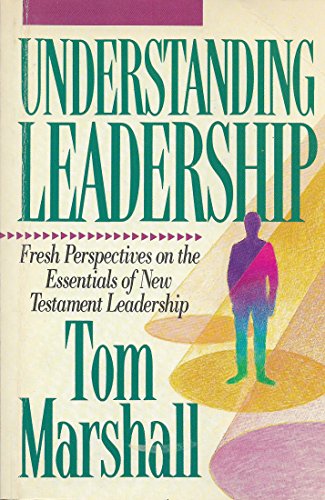Seeking Understanding; Understanding Leadership

Kristina and I wed in the spring of 2004. It was an amazing day. Kristina is an amazing woman.
Prior to our wedding we had a great plan laid out for the beginning of our marriage. None of it came together. Somehow, by the grace and plan of God, on the day of our wedding we had plane tickets to S. Korea, a 3 week job teaching English at a summer camp lined up, and 6 weeks before we left the country.
We went on our honeymoon, stayed at the home of some good friends, and visited family around the country before packing up to board a plane and fly across the world. Neither of us had a lot of stuff; I had lived on and near campus throughout university and Kristina had lived at home. Still, we maxed out our suitcase allowance. And this was back in the day when you could check two bags a person with a maximum weight of 50lbs per bag. We even had to do some rearranging as when our bags were weighed one of them was slightly over 50lbs and one of them was under. Why did we have so much stuff for a 3 week camp? Because our plan was to get a job in S. Korea teaching English for a year. Kristina landed us just such a job the day after we landed in the country. Like I said: Amazing.
We brought books, but not what we would call a lot of books. One of those books was Understanding Leadership by Tom Marshall. I knew God was calling me to full time vocational ministry. I didn't know what that was going to look like. But by this point I knew that leadership skills would be helpful and, perhaps, essential wherever God led me. Part of what I wanted to do as we spent a year in S. Korea was get to know myself better and, hopefully, grow in understanding God's calling for me. Thus, I started to read leadership literature. In hindsight most of it does not pass the test of time. Understanding Leadership is one shining exception.
It is a fairly straightforward book. It is not complicated nor difficult to read. It is ordered and sectioned in a way that makes sense. And it is full of wisdom.
Marshall begins with the core characteristics of leadership in terms of the role and position (foresight, goals, impartation of vision, wisdom in timing), moves to the dangers of this role and position (specifically the dangers of power) and thus to the necessary character of leaders (Servant leadership). This leads to the challenges of leadership (dealing with status, criticism, authority, and stress) and finally to some key aspects of leading well (relationships, trust, love, honor, understanding, and teams). He concludes with a brief and to the point chapter on "When Leaders Fail."
More than any other book on the subject Understanding Leadership has shaped my own thinking on leading well. Two chapter in particular stood out to me, and still do: "Authority - the Leader's Mantle" and "Trust, the Cost of Commitment."
Authority is an issue I see a lot of people struggle with, especially young leaders who have recently taken on a position with some authority. We tend to either over-exercise our authority, reveling in our new found power and over-extending our reach to the point of either falling over or making those around us flee, or under-exercising our authority, defaulting back into operating as if we didn't actually possess authority. Marshall helpfully lays out the dynamics of different kinds of power and different kinds of authority, walking through task authority, teaching authority, and spiritual authority as the most typical types that we utilize. In each case he explains the nature, purpose, and obedience of this authority. His teaching on spiritual authority, beginning with a quote from Menno Simons, has been formative for me:
"'Spiritual authority is never to make the rebel conform; its only purpose is to enable the obedient person to live a holy life. Therefore it rests on submission and obedience freely given. Furthermore, spiritual authority has only spiritual means at its disposal; its only weapons are prayer, scripture, counsel and the power of a holy life.'
Church leaders who are exercising spiritual authority must therefore strenuously avoid coercion and manipulation in any form whatsoever, whether by force of will or personality, charisma or reputation, or group or peer pressure. Even more to be shunned are claims to divine revelation or divine sanction to back up directives or reinforce views or opinions."
When it comes to trust, Marshall repeatedly emphasizes the importance of trust. "Of all the elements of relationships, the one that is most crucial to leadership is probably trust.... Leadership is a position of trust, and in any position of trust the greater burden of responsibility rests on the party that has most power." This struck me as clearly true and very important and I have always placed a very high priority on my own acting faithfully that I might be trustworthy in whatever position I occupy.
I could go on with the many other things I learned from this book. I'll stop here. You should read it!
Note: This post is part of a series which I began here. To see all the posts in the series click the label at the bottom of this post "20yrs40bks".
Comments